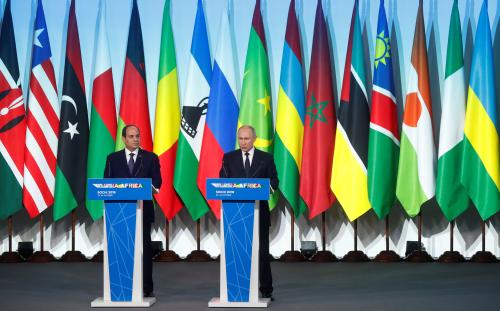Ethiopia welcomes domestic and foreign investors as state of emergency is lifted
On Tuesday, June 5, the Ethiopian parliament approved a bill lifting the country’s second nationwide state of emergency two months ahead of schedule. The country has been under a state of emergency since 2016 after a wave of anti-government protests by the Oromo people objecting to political and economic marginalization.
Also this week, Ethiopia announced reforms to open up for new investment. On Tuesday, the country announced that it would allow private domestic and foreign investment in the country’s telecommunication, electricity, and logistics companies, as well as Ethiopian Airlines, in order to address a dire shortage of foreign currency. Notably, the state will remain the majority owner of these companies. Still, the move toward privatization comes just two months after the new prime minister promised economic changes in the country, sending a strong signal to investors that the government is serious about economic reform, The Economist argues.
Ethiopia also made significant progress in the diplomacy realm this week. On Tuesday, the country declared that it would fully accept and implement the Algiers agreement, which requires removing Ethiopian troops from disputed territories, including the town of Badme, awarded to Eritrea by the Eritrea Ethiopia Boundary Commission (EEBC) in 2002. Restoring peaceful relations with Eritrea was another promise from Prime Minister Abiy Ahmed in his inauguration speech in April.
Russia aims to deepen cooperation with Africa while the US plans to scale back militarily
On Sunday, June 3, Russian Foreign Minister Sergey Lavrov traveled to Rwanda to discuss military and economic cooperation with President Paul Kagame. “We have good cooperation in the area of military technology. Rwandan security forces, army, police have our helicopters, cars…small arms. Now, we are discussing supplies of air defense systems,” Lavrov said at a press briefing. After the Rwanda visit, President Vladimir Putin announced that Russia would cancel $20 billion in debt contracted by African nations to help the continent overcome poverty.
In recent months, Russia has shown an interest in reaffirming ties with African nations. In March 2018, Lavrov went on an Africa tour to reignite bilateral relations in the region, visiting Angola, Ethiopia, Mozambique, Namibia, and Zimbabwe. According to Paul Stronski, a senior fellow in the Russia and Eurasia program at the Carnegie Endowment for International Peace, Russia’s recent outreach to Africa stems from an acknowledgement that its partnership with the region is lagging and it needs “to play catch-up in Africa,” Voice of America reports.
In contrast, the United States recently announced that it may be stepping back parts of its military engagement in Africa. Following the review of a deadly attack in Niger that killed four American soldiers, the Pentagon stated that it would cut Special Operations Forces in the continent by as much as half over the next three years.
South Africa’s economy contracts in the first quarter of 2018
South Africa’s statistical agency released the country’s latest official gross domestic (GDP) growth figures on Tuesday, which revealed that the country’s GDP contracted by an annualized 2.2 percent in the first quarter of 2018. This decrease registered as the largest quarterly drop in nine years and was far below the forecasted quarter-on-quarter change. The sectors with the largest declines in production in Q1 2018 included the agriculture sector, which shrunk by almost a quarter from Q4 2017 due to severe drought, while mining fell by almost 10 percent and manufacturing by more than 6 percent. Following news of the country’s shrinking GDP, the rand weakened by 2 percent, yields on benchmarks bonds rose eight basis points, and retail and banking stocks fell by 3.4 percent and 2.3 percent, respectively.
Kiara Rodriguez Gallego contributed to this post.







Commentary
Africa in the news: Ethiopia’s reform, Russia’s Africa ties, and South Africa’s contracting economy
June 9, 2018